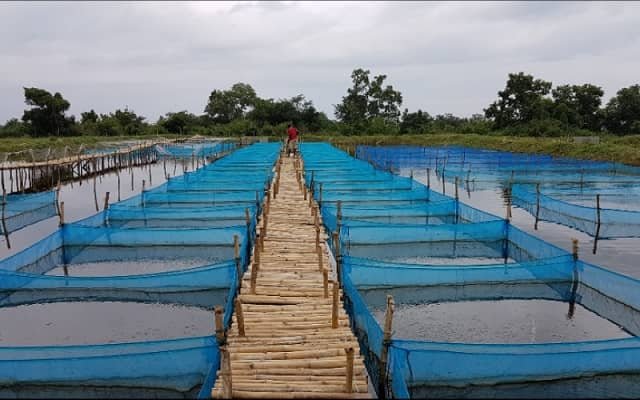Under the slogan “Our Future – Growing from water”, the Aquaculture Europe 2019 conference addressed innovative ways to support the aquaculture economy. This year, the European Commission DG RTD unit “Healthy Oceans & Seas” and the EATiP co-organised a full day programme called “Low impact – High output”. It addressed future opportunities of new value chains in aquaculture, specifically targeting low trophic species.
Through three consecutive sessions, major outcomes of European technology and innovation efforts contributing to ensuring food and nutrition security were presented, followed by industry-driven panel discussions where the audience had the chance to participate. The sessions provided a dissemination arena and high visibility of EU support to the sector. They also generated ideas for future research by linking Horizon 2020 project findings to opportunities for industrial applications and uptake. The AQUAEXCEL2020 session aimed to create a forum for engagement and exchange between researchers and potential industry beneficiaries, focusing on presenting innovative solutions generated by the project with potential high impact on the aquaculture industry.
Read the full report from the EU-EATiP Day here http://eatip.eu/wp-content/uploads/2019/12/Low-trophic-aquaculture-value-chain-workshop-report2410.pdf
Source: EATIP
Editor at the digital magazine AquaHoy. He holds a degree in Aquaculture Biology from the National University of Santa (UNS) and a Master’s degree in Science and Innovation Management from the Polytechnic University of Valencia, with postgraduate diplomas in Business Innovation and Innovation Management. He possesses extensive experience in the aquaculture and fisheries sector, having led the Fisheries Innovation Unit of the National Program for Innovation in Fisheries and Aquaculture (PNIPA). He has served as a senior consultant in technology watch, an innovation project formulator and advisor, and a lecturer at UNS. He is a member of the Peruvian College of Biologists and was recognized by the World Aquaculture Society (WAS) in 2016 for his contribution to aquaculture.







